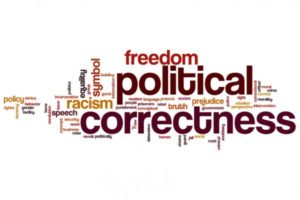We’re in the middle of a global extended day of rage against political correctness
 Are we nearing high noon of the global extended day of rage against political correctness?
Are we nearing high noon of the global extended day of rage against political correctness?
In the past few years, politics in Europe and in the United States has generally seemed uglier and meaner. Far-right and anti-immigration parties with their ugly brutish rhetoric are gaining strength in Poland, Hungary, Austria, France, and Germany. Knuckle-duster commentary on immigrants, Muslims (and even fellow-Europeans) is apparent in the British campaign ahead of the June 23 Britain-EU referendum.
More specifically, there are the following disturbing developments:
- the murder of British MP Jo Cox by a neo-Nazi man who wants “death to traitors and freedom for Britain” (whatever that may mean)
- the support enjoyed so far by American demagogue and presidential hopeful Donald Trump. It is not overwhelming but large enough to command our attention. Mr Trump received roughly 14 million votes in the primaries. Even if he were to lose the November 8 general election, he could still reliably expect to have drawn about 50 million votes, or one-third of the American electorate
- the almost-win of the Austrian presidential election by Norbert Hofer of the anti-immigrant Freedom Party
- Hungarian prime minister Viktor Orban’s open championing of the idea of “illiberal democracy”
- The election in the Philippines of Rodrigo Duterte, who is one worse than Donald Trump (no, really) on incendiary pronouncements but, unlike Mr Trump, has some record of public service and some success to show for it. Mr Duterte says things like wanting to be the first in line to gang-rape a woman, and that he would kill thousands of criminals without trial.
So far, so ugly. But what, you might ask, does political correctness have to do with any of it?
It does have a great deal to do with the sense of ill-usage that is being stoked in some people about being forced to adhere to linguistic norms that respect individuals and community groups. White men over 50 in the US, for instance, are being told they are disadvantaged for being denied the right to call black people “niggers” and tell Mexican migrants they are rapists and drug-dealers. Are they disadvantaged?
To be rude to or about some one is not a blow against political correctness; it’s just about being rude and socially disruptive.
The war on political correctness may be provoking people who might not have acted on their prejudice to strike out at others. Verbally and with physical violence. The Jo Cox murder may be a case in point.
That’s why it’s urgent to re-label political correctness and describe it correctly: it’s linguistic good manners.

